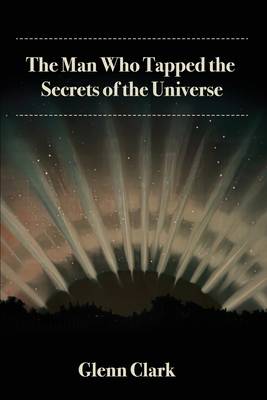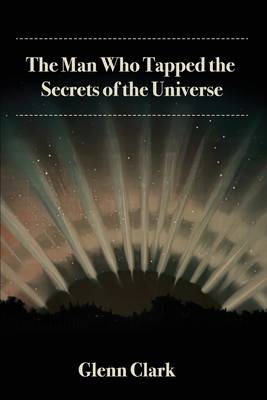
- Afhalen na 1 uur in een winkel met voorraad
- Gratis thuislevering in België vanaf € 30
- Ruim aanbod met 7 miljoen producten
- Afhalen na 1 uur in een winkel met voorraad
- Gratis thuislevering in België vanaf € 30
- Ruim aanbod met 7 miljoen producten
Omschrijving
The Man Who Tapped the Secrets of the Universe (1946) by Glenn Clark is a work of biography and philosophy, exploring the life and ideas of the versatile artist, writer, and philosopher Walter Russell.
New Thought writer and professor Glenn Clark (b. 1882, d. 1956) was a fervent believer in the power of prayer and the Light of God to reveal the secrets of the universe. As he explains in Chapter One: We Go Seeking, he had been searching "...for a man who has discovered the universal law which lies back of the Sermon on the Mount, and who consciously uses that law with full awareness of its meaning, and full obedience to its principles." He believed that he had found that man in Walter Russell.
Walter Russell (b. 1871, d. 1963) was a man who seemed preternaturally adept at everything he wished to try. After being removed from school at the age of nine and sent to work at a dry goods store, he worked a number of low-paying jobs. But he had "absolute faith...that anything can come to one who trusts to the unlimited help of the Universal Intelligence that is within so long as one works within the law and always gives more to others than they expect, and does it cheerfully and courteously."
Throughout his life, he found success as a musician, painter, sculptor, writer, ice skater, philosopher, and lecturer. He was commissioned to sculpt a 28-figure Mark Twain Memorial just a few years after he began sculpting. And in 1943, President Franklin D. Roosevelt asked him to sculpt the Four Freedoms Monument. He designed several buildings in New York City and invented the cooperative ownership model (aka the co-op). And most of these pursuits were undertaken with no formal education.
By the time Clark met with Russell, he had achieved success in his artistic, literary, architectural, physical, and even scientific pursuits. So when Clark was searching for a man who knew the secrets of the universe and was referred to Russell on more than one occasion, he knew that he had to meet him.
Large portions of the book, particularly in the chapters We Meet the Man, We Meet the Man of Action, and The Five Laws of Success, are presented as an interview with Russell, giving us insight into his beliefs straight from the source.
"Every successful man or great genius has three particular qualities in common," he says. "The most conspicuous of these is that they all produce a prodigious amount of work. The second is that they never know fatigue. And the third is that their minds grow more brilliant as they grow older, instead of less brilliant. Great men's lives begin at forty, where the mediocre man's life ends. The genius remains an ever-flowing fountain of creative achievement until the very last breath he draws."
At the heart of Russell's philosophy is a belief that every man "has consummate genius within him. Some appear to have it more than others only because they are aware of it more than others are, and the awareness or unawareness of it is what makes each one of them into masters or holds them down to mediocrity..."
To know that we have genius inside of us, and to have absolute faith in our inner voice and in the Universe, is to unlock that genius. Through the story of Russell's brilliant life and his Five Personal Laws of Success (humility, reverence, inspiration, deep purpose, and joy), the reader gets a plain-language example of genius-in-action.
He demonstrated his great energy, lack of fatigue, and "ever-flowing fountain" of genius throughout his long life, maintaining his creativity until his death in 1963 at the age of 92.
Specificaties
Betrokkenen
- Auteur(s):
- Uitgeverij:
Inhoud
- Aantal bladzijden:
- 48
- Taal:
- Engels
Eigenschappen
- Productcode (EAN):
- 9781684931019
- Verschijningsdatum:
- 15/08/2022
- Uitvoering:
- Paperback
- Formaat:
- Trade paperback (VS)
- Afmetingen:
- 152 mm x 229 mm
- Gewicht:
- 81 g

Alleen bij Standaard Boekhandel
Beoordelingen
We publiceren alleen reviews die voldoen aan de voorwaarden voor reviews. Bekijk onze voorwaarden voor reviews.











